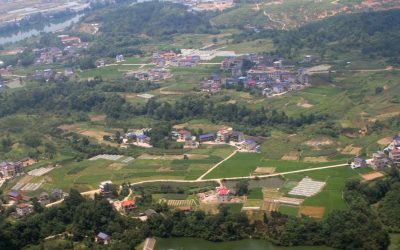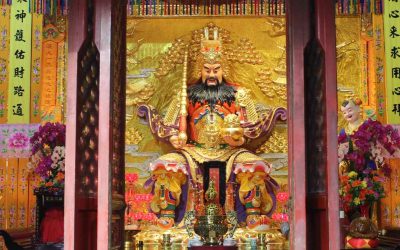The truth about the Great Wall
What would later come to be known as the Great Wall formed as a response to increased Mongol raiding after Esen was killed in 1455. Having failed to capitalize on the capture of Zhengtong, Esen lost the political momentum that had held the disparate Mongol groups together. The ensuing civil war spread into Chinese territory as warring factions sought economic resources to support their military efforts. One faction moved into the Ordos region, now no longer supervised by a Ming garrison, placing the Mongols squarely against Ming territory. The Mongols still wanted to present tribute, and receive gifts in return, and to trade with the Ming; failing that, they raided. Meanwhile, the Ming court was Itself distracted by Zhengtong’s return to power in a coup d’état in 1457. Jingtai died of illness or was poisoned, and Zhengtong resumed as emperor with a new reign period: Tianshun.
It was difficult to establish a consistent policy toward the Mongols given their ongoing wars, a situation further exacerbated by Tianshun’s weak leadership. A proposal to launch a campaign to retake the Ordos and establish garrisons, fortified positions, and agriculture, and so maintain control of the area, was approved, but nothing came of it. Further proposals for offensive action were sanctioned and left unfulfilled. In the interim, some commanders suggested pulling back to more hilly areas to the south that were easier to defend. This too was rejected. In 1471, Yu Zijun submitted a plan to build wall between Yansui and Qingyang to aid in defense.
A wall-based defense was expensive to construct and of questionable effectiveness. Yet the court did not have the will to devote the economic and military resources necessary to launch its desired offensive. Wall building won out because it was cheaper than any offensive; the first two long walls were finished in 1474, one 129 miles long and the other 566 miles long. Over the next century more and more walls were built; in many places there were actually two lines, with forts and watchtowers, evolving into what we now know of as the Great Wall. Although the walls were useful, they were never intended as a complete solution to the Mongol problem. The difficulty was that the same economic, political and military problems continued to obtain, leading successive generations through the same debate that put additional resources into wall building. The short-term question was how to make the wall system more effective, since the long-term problem of the Mongols could not, apparently, be solved.
Peter Lorte. War, Politics and Society in Early Modern China 900-1795. Routledge. London and New York. 2005. P. 124
About me: I have spent 30 years in China, much of the time traveling and studying this country’s culture. My most popular research focuses on Chinese characters (Chinese Characters: An Easy Learning Method Based on Their Etymology and Evolution), Matriarchy in China (there is a book with this title), and minority cultures (The Naxi of Southwest China). In my travels, I have specialized in Yunnan, Tibet, the Silk Road, and other lesser-known places. Feel free to write to me if you’re planning a trip to China. The agency I collaborate with offers excellent service at an unbeatable price. You’ll find my email below.
Last posts
To Serve the People, a satire by Yan Lianke
To Serve the People, a satire by Yan Lianke In Brief: A biting satire in which the small longings of each person are exposed as the inevitable substratum on which great ideals, such as "serving the people" are built. The censorship of a Chinese work is a powerful...
Chronicle of a Blood Merchant by Yu Hua
Chronicle of a Blood Merchant by Yu Hua One of the best Chinese novels of the 20th century. Without the apparent search for big ideas, it seduces the reader by its simplicity, and ends up entangling him in its plot. Chronicle of a blood seller, in reality, it is only...
The Grand Canal and the Great Wall
The Grand Canal and the Great Wall In Brief: A brief review showing some of the similarities between the two iconic works of Chinese history and culture, their goals, and their differences. As well as how they both ended up shaping this country. I have always been...
Duanwu Festival at a Taoist temple
Duanwu Festival at a Taoist temple Last Saturday I received news that during the Duanwu festival there would be a small ceremony at the Zhenqing Taoist temple. According to the information received throughout the day, there would be different cultural activities,...
The Canon of the Yellow Emperor
The Canon of the Yellow Emperor In Brief: The last great work of Chinese philosophy discovered so far, deserves to be known by all those interested in this country. Almost 50 years ago, in 1973, an important quantity of artistic objects was discovered in an ancient...
Super me – A beautiful adaptation of Lu Dongbin dream
Super me - A beautiful adaptation of Lu Dongbin dream In Brief: An adaptation of the myth of Taoist sage Lu Dong ping to the modern world. It manages to maintain a steady interest and combine Taoist teachings with some moralizing provided by the director. A failed...










